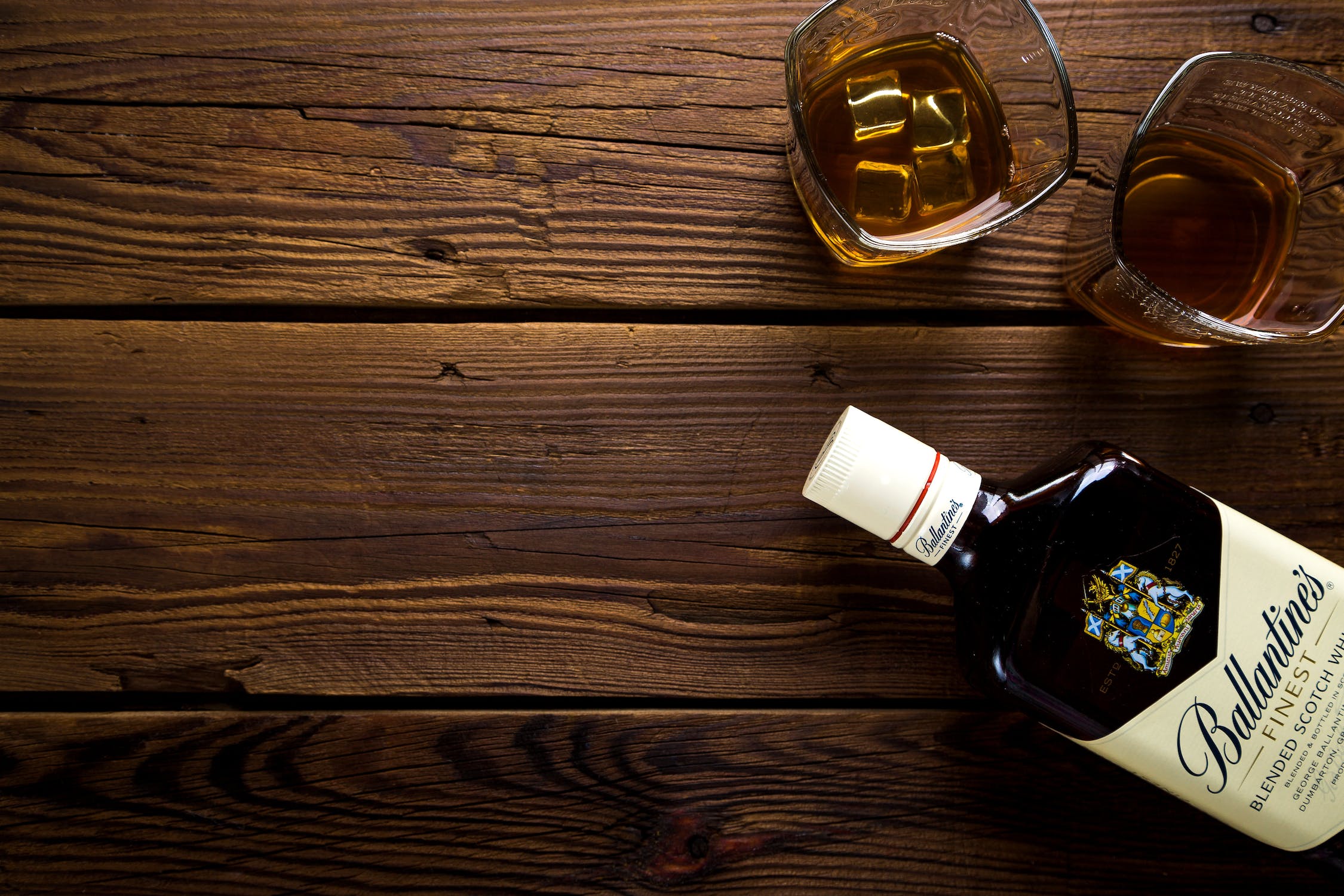Addiction | 4 min read
What are the Different Types of Alcohol?
Medically Reviewed By

On December 19, 2022
Written By
On December 19, 2022

What Is Alcohol?
Beer, wine, and liquor contain the intoxicating substance known as ethanol. The fermentation of yeast, sugars, and starches results in the production of alcohol.
The Three Types Of Alcohol
Alcohol comes in three different forms: beer, wine, and liquor. Some alcoholic beverages contain more alcohol than others, which makes them more likely to lead to intoxication and alcohol poisoning more quickly and at lower doses.
What’s the Difference Between Distilled And Undistilled Alcohol?
Alcoholic beverages that have not undergone any distillation are those that have only undergone fermentation. Bacteria or yeast chemically transform sugar and starches into ethanol during fermentation. Wine and beer are the two most traditional non-distilled alcoholic beverages. Wine is produced from fermented grapes, and beer is produced from barley, wheat, and other grains.
After the fermentation stage, distilled alcoholic beverages go through another phase. By eliminating water and other ingredients, the distillation process concentrates the alcohol of fermented drinks, making them stronger. All liquor and spirits are distilled liquor, and unlike undistilled alcohols, they often contain greater alcohol by volume (ABV) and alcohol-proof levels.
Undistilled Alcoholic Drinks by Alcohol Content
There are numerous varieties of alcoholic beverages, and some of them have higher alcohol content than others. Higher alcohol content alcoholic beverages can quickly (and in lower doses) lead to intoxication and alcohol poisoning.
Here are the main undistilled alcohol types and their alcohol by volume.
| Alcohol Type (Undistilled) | Alcohol By Volume (ABV) |
| Beer | 4% to 8% |
| Hard Cider | 2% to 6% |
| Mead | 10% to 14% |
| Saké | 16% |
| Wine | <14% |
Distilled Alcoholic Drinks by Alcohol Content
Distilled alcohol is stronger than undistilled and leads to feelings of intoxication more quickly.
Here are the main distilled alcohol types and their alcohol by volume.
| Alcohol Type (Distilled) | Alcohol By Volume (ABV) |
| Absinthe | 40% to 90% |
| Brandy | 35% to 60% |
| Everclear | 60% to 95% |
| Gin | 35% to 55% |
| Rum | 40% |
| Tequila | 40% |
| Vodka | 40% |
| Whiskey | 40% to 50% |
As you can see, the range of alcohol content per drink can vary drastically. Not every alcoholic drink is equal, and it’s important to maintain awareness when mixing alcohol types. If you drink a smaller alcohol volume, such as a beer, and follow it up with something stronger like tequila or gin, you may feel drunker quicker.
What Does Drinking Alcohol Do to Your Body?
Drinking alcohol frequently may cause the following symptoms [1]:
- Thin your blood. Alcohol prevents your blood cells from sticking together.
- Impact your immune system, causing white blood cells to respond slowly.
- Puts you at risk of osteoporosis.
- Causes erectile dysfunction in men.
- Stop menstruation or infertility in women.
- Cause circulatory problems.
What are the Dangers of Alcohol?
Alcohol can lead to a series of dangerous habits or issues. Drinking alcohol heavily can thin your blood. Habitual drinkers may also succumb to mixing alcohol with medications. This is extremely dangerous and may be lethal in some cases. Sometimes, alcohol addiction may be hard to curb, even for those who are pregnant. Drinking while pregnant can lead to fetal alcohol syndrome. [2]
What is Alcohol Use Disorder?
Alcohol use disorder is a pattern of drinking that includes issues with self-control, obsession with alcohol, or using alcohol even when it creates issues. Other signs of this illness include needing more alcohol to achieve the same impact or experiencing withdrawal when drinking is abruptly reduced or stopped. A level of drinking frequently referred to as alcoholism is a component of alcohol use disorder.
How Can You Tell if You’re Addicted to Alcohol?
Some signs of alcoholism include:
- Lying about how much you’ve had to drink
- Misremembering events
- Relationship problems
- Unable to stop after just one or two drinks
- Missing deadlines or performing poorly at work
- Notice an uptick in your alcohol tolerance
- Trying to stop but having difficulty
Even if you exhibit one of these symptoms, it doesn’t indicate you necessarily have a drinking issue or are dealing with alcoholism or a substance addiction condition. However, you might want assistance if you notice several in yourself (or numerous in a loved one).
How Can You Repair Your Body After Years of Drinking?
The benefits of quitting alcohol are apparent once you stop. Your body can repair itself once you introduce a healthier lifestyle. A proper diet and exercise can help get your body back on track, but sometimes drinking may damage the brain.
Sometimes, alcohol-related brain damage can be repaired once a person stops drinking. It depends on circumstances and varies from person to person.
What Happens to Your Body When You Stop Drinking Alcohol?
If you stop drinking, a few things can happen to your body.
Alcohol Withdrawal
Alcohol withdrawal takes effect within the first 24 hours after your last drink. Heavy drinkers may experience tremors, mood swings, insomnia, nausea, and unpleasant side effects.
You Can Lose Weight
Alcohol is high in sugar, and cutting out alcohol may cause weight loss.
Feel Healthier
Stopping drinking helps you feel healthier. Those who crave alcohol may benefit from zero-proof alcohol. Zero-proof alcohol is non-alcoholic wine, beer, and spirits. While it tastes like the real thing, it contains no alcohol, leading to a healthier you.
Alcohol Detoxification Timeline
Since everyone is unique, there is no set period during which alcohol withdrawal should occur. The duration and types of withdrawal symptoms experienced during detox will vary depending on the individual circumstances of each person undergoing it. In general, alcohol detox works like this:
| Timeframe | Effect |
| 24 Hours | Tremors, shakes, night sweats, anxiety, mood swings.
Symptoms peak between 24 and 72 hours. |
| 1 Week | Delirium tremens, seizures, nightmares, insomnia |
| 2 Weeks | Most withdrawal symptoms are gone by the end of week one, but some may linger |
| 3 Weeks and beyond | Work on repairing psyche |
What Treatments are Available for Alcohol Use Disorder (AUD)?
- Intervention
- Individual or Group Counseling
- Attending Alcoholics Anonymous
- Alcohol Rehab
You Don’t Have to Go it Alone
Recovery is not something you have to deal with alone. With respect and compassion, our team of caring medical professionals is here to support you as you deal with your alcohol use disorder. Please get in touch with us immediately to start getting your life back on track if you or someone you love is battling alcoholism.
Frequently Asked Questions about Alcohol Use
The most common treatment method for alcohol addiction includes attending a 12-step program called Alcoholics Anonymous, also known as AA. However, in some cases, alcohol rehab may be necessary.
Spirits like whiskey, vodka, and rum are the most addictive forms of alcohol on the market today. However, any form of alcohol may become addictive — it varies from person to person.
The alcohol content of a 12-ounce beer is comparable to that of a 5-ounce glass of wine or a 1.5-ounce shot of booze. The amount of alcohol ingested, not the kind of alcoholic drink, has the biggest impact on a person.
When following the tenets defined by Alcoholics Anonymous[3], there are 12 steps to recovery:
- We admitted we were powerless over alcohol — that our lives had become unmanageable.
- We came to believe that a Power greater than ourselves could restore us to sanity.
- We made a decision to turn our will and our lives over to the care of God as we understood Him.
- We made a searching and fearless moral inventory of ourselves.
- We admitted to God, to ourselves, and to another human being the exact nature of our wrongs.
- We’re entirely ready to have God remove all these defects of character.
- We humbly asked Him to remove our shortcomings.
- We made a list of all persons we had harmed and became willing to make amends to them all.
- We made direct amends to such people wherever possible, except when to do so would injure them or others.
- We continued to take personal inventory, and when we were wrong, we promptly admitted it.
- We sought through prayer and meditation to improve our conscious contact with God as we understood Him, praying only for knowledge of His will for us and the power to carry that out.
- Having had a spiritual awakening as the result of these Steps, we tried to carry this message to alcoholics and to practice these principles in all our affairs.
The average life expectancy of those who must be hospitalized due to the harmful effects of their alcoholism is 50 to 58 years for women and 47 to 53 years for men.
Alcohol is poisonous to your cells. Heavy drinking (defined as eight or more drinks for women and at least 15 for men per week) can damage the liver and cause cirrhosis, fatty liver, and other issues. [4]
The good news is that your liver can regenerate and mend itself.
Rehab provides a well-rounded understanding of why you may struggle with alcohol addiction. Getting to the root gives clarity and allows you to work on overcoming barriers.
Once the physical symptoms of alcoholism have subsided, rehab targets the emotional and mental impacts of alcoholism. Many alcoholics self-medicate with alcohol to cope with their personal, professional, and social stresses.
While you can quit drinking on your own, it is not advised. Detoxing under medical supervision is important to ensure your body doesn’t go into shock.
Alcohol rehab benefits those struggling with alcohol use disorder to recover and find peace in a compassionate setting. Rehab helps to regain control over your life and develop better coping mechanisms and habits.
Ascendant New York Editorial Guidelines
Here at Ascendant New York, we understand the importance of having access to accurate medical information you can trust, especially when you or a loved one is suffering from addiction. Find out more on our policy.
- Akins, B. Cone Health. (2019, January 11). 7 things drinking alcohol does to your body. Retrieved from https://www.conehealth.com/services/behavioral-health/7-things-drinking-alcohol-does-to-your-body/ on 2023, January 17
- Vorgias, D., Bernstein, B. National Library of Medicine. (2022, June 11). Fetal alcohol syndrome. Retrieved from https://www.ncbi.nlm.nih.gov/books/NBK448178/ on 2023, January 17
- Alcoholics Anonymous. (n.d.). Alcoholics anonymous. Retrieved from https://www.aa.org/the-twelve-steps on 2022, December 29
- Boersma, P., Villarroel, M.A., Vahratian, A. National Library of Medicine. (2020, August). Heavy drinking among U.S. adults, 2018. Retrieved from https://pubmed.ncbi.nlm.nih.gov/33054914/ on 2022, December 29





